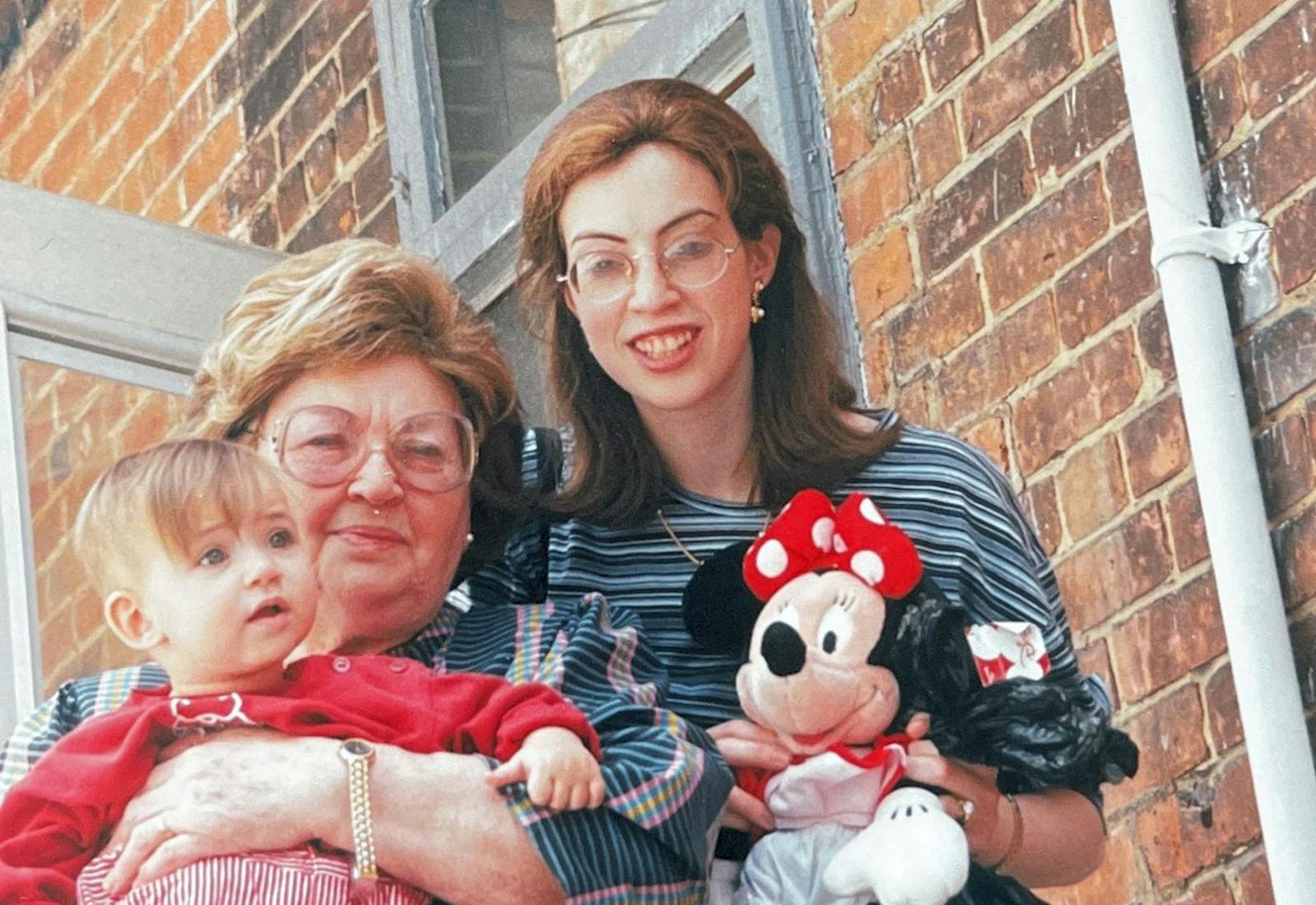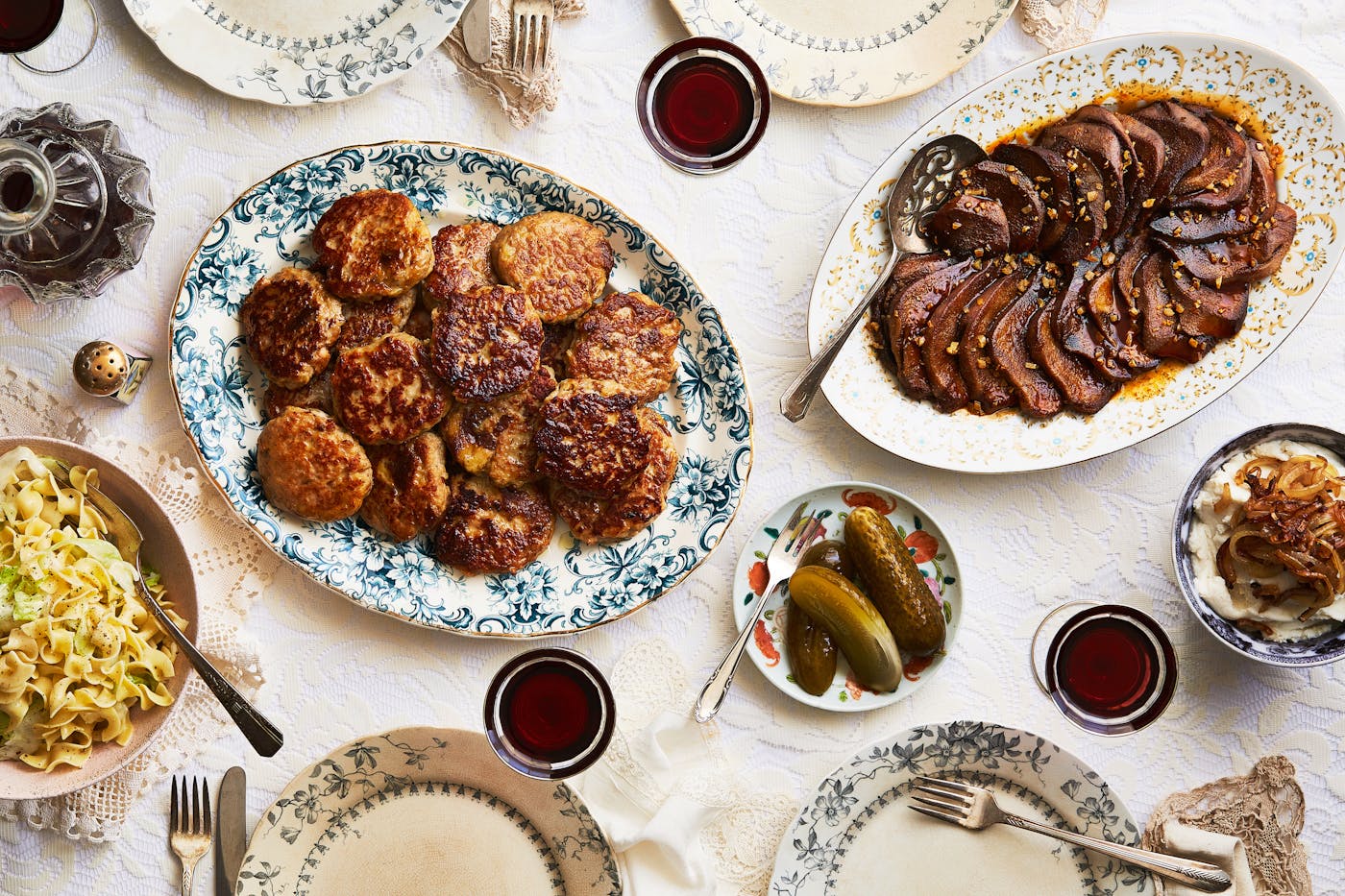Shared by Baily and Gittelle Kohn


Baily Kohn remembers her great-grandmother Alta Blima Hartstein as a “strong, powerful woman, but not in a way you’d expect, she had a softness to her,” she says. Baily’s mother Gittelle adds that Alta Blima was always ready with home cooked food and “had a lot of sad stories to tell, but it [wasn’t] ‘woe is to me.’ She was strong, she persevered, she let us know and we looked up to her.”
Alta Blima was born into a Romanian Hasidic family in 1920 in Spinka, the Yiddish name for Săpânța, a town that was once part of Hungary and now sits in far northern Romania, beside the border with Ukraine. She was born into a large family and named Blima, which means flower in Yiddish, at birth. But, when she got very sick as a baby, a rabbi instructed the family to add “Alta” (old, in Yiddish) to her name and she lived to be 102, Gittelle shares.
When World War II broke out, Alta Blima was a young woman who was engaged to be married. But her family’s life was torn apart just before Passover. “The Seder table was already set and they were in the process of preparing everything for Pesach,” Baily explains. Nazi soldiers rounded up the Jews in the area and beat her father. That’s the last memory she had of him. In his final words to her, he told Alta Blima and her sister Malka to stay with one another.
“And they did, they survived the war together,” Baily shares. When they arrived at Auschwitz, Malka was sent to the line destined for the gas chambers, but managed to reunite with Alta Blima who was in the line of people sent to the barracks. Later in the war, their barrack was sent to the gas chamber, but they were pulled out when the Nazis realized they had intended to send another group. Many of the people with them had already died, but Alta Blima “came out of it alive — that’s her miracle story,” Baily says.
Sadly, most of her family members, including her parents, as well as her fiance were lost during the war. After the camp was liberated, the sisters worked in a pickle factory and Alta Blima met the man she would marry. They also reunited with one of their brothers who they heard had survived. “One Friday, he just showed up,” Baily shares from a series of short videos she made of her great-grandmother speaking about her life in Yiddish.
When Communist forces nationalized the pickle factory, the family realized they had nothing left. “They smuggled themselves out through the night,” Baily says, and traveled by horse and buggy and then made their way to Canada by boat in the late 1940s.
A man from the Hebrew Immigrant Aid Society (HIAS) took them to a small place where they would stay in Montreal. In one of the videos, Alta Blima recalls he asked where their belongings were. Alta Blima said they were coming — but it was a lie. They had no belongings other than what was with them. As the man drove, he stopped at a grocery store and picked up milk and orange juice, which Alta Blima looked at with envy, not realizing the food was for them. When he gave it to her, Alta Blima insisted she would pay him back after she started her job. He told her not to worry about it, they would find one another. But “she never saw him again,” Baily says.
In time, the family settled into life in Montreal and Alta Blima ran her own business, selling linens from her basement. When Gittelle was growing up in Brooklyn, she and the other grandchildren would have sleepovers and play pretend in the shop when they visited her. Alta Blima cooked for them and, as a Holocaust survivor, she always wanted to make sure they were well nourished.
Alta Blima visited the family in Brooklyn, too, always joining them for Sukkot and Simchat Torah at her daughter Chanie’s home. Their hasidic family is too big for everyone to gather for meals together, but smaller groups would stop by between holiday services and celebrations for dishes like fasírt, chicken patties made with challah leftover from Sukkot, slices of seared beef tongue, and stuffed veal pockets. Kindl, a rolled cookie with a sticky walnut filling, was always part of dessert since it’s customary to serve stuffed foods around Sukkot as a nod to the season’s abundant harvest. “She would shine seeing her grandchildren,” Baily shares.
Last year, Baily went on a Holocaust remembrance trip to Poland in Alta Blima’s honor, though her great-grandmother didn’t know she was going. “I think it was hard for her to know that anyone was going back there,” Baily says. Tragically, Alta Blima passed away 12 hours after Baily left. “It felt empowering to be in a space where a part of her soul died; I got to be there while she was moving on to the next world,” Baily shares. “I felt like I could be in that space and hold space.”
